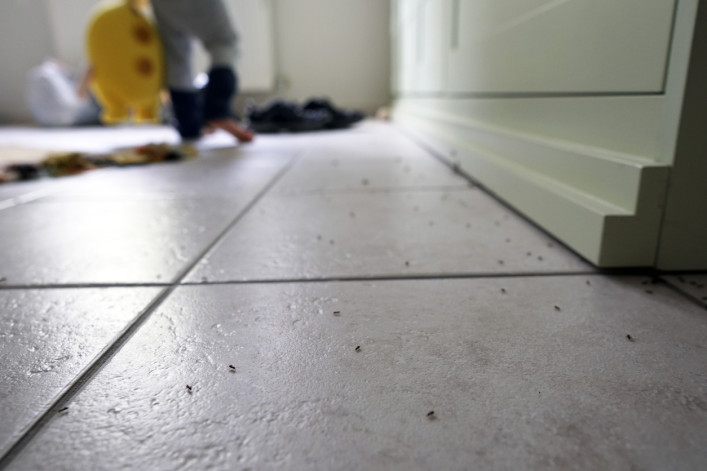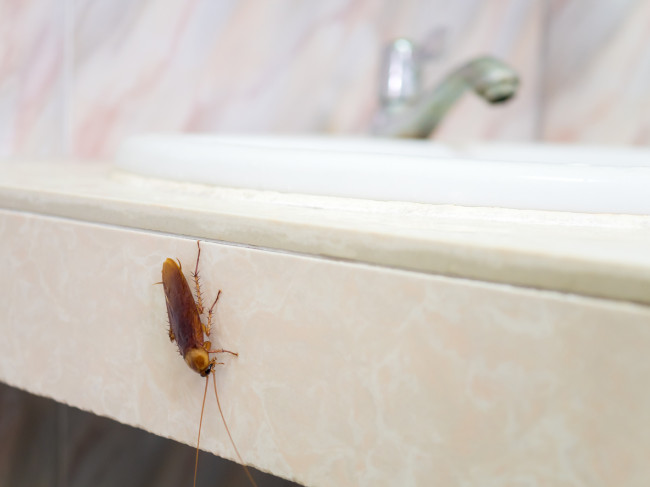How to deal with an ant infestation in your NYC apartment

The best strategy to deal with ants is bait and patience.
iStock
Are ants marching nonstop across the kitchen counters in your New York City apartment? You're not alone. Spring is typically when there's an increase in ants looking for food and water sources. If the problem seems worse than in years past, it may be because you (or your neighbors) are working from home (more meals at home = more crumbs) plus the city's sidewalk eateries offer abundant places to nest.
If you're a renter, it's important to remember that it's a landlord's responsibility to make sure your apartment is free of pests. The warranty of habitability ensures you shouldn't have to put up with unlivable conditions—and that includes infestations of rats, mice, roaches, and other insects.
Ants are certainly easier to treat than rodents and roaches. According to Gil Bloom, president of Standard Pest Management, the best way to tackle an ant infestation is with bait and patience.
Where are the ants coming from?
Most ants build colonies in the ground and that's why Bloom says the city's outdoor dining structures are a problem: Many have walls filled with dirt to create a barrier against vehicles and as place to grow plants. "They are nesting in the dirt—in the walls of the booths where they have plants," Bloom says. (Mice and rats have also been known to nest in there, he says.)
Ants will also establish colonies in the front and backyards of apartment buildings. Bloom says ants may come inside when landscaping outside a building disrupts their home or when residents bring in potted plants. (He was once called to get rid of a groundhog from an interior courtyard and figured out the rodent must have hitched a ride in the soil around the trees brought in for planting—so ant colony refugees wouldn't surprise him.)
Another factor can be rain. If a deluge floods a nest, ants will be looking for a suitable place to relocate.
In spring, however, they are looking for food.
"They are very much in foraging and food establishing mode," Bloom says. Most of the colony are back in the nest but forager ants are out looking for food and water, searching "aimlessly" as Bloom puts it. Once they find a food source—your cat food or the wet sponge by the kitchen sink—that's when they establish linear routes (against the wall, along the edge of the countertop) to and from the nest.
What's the best control treatment?
There are more than a dozen types of indoor ants. If you can collect one for identification, that can help you determine the best control treatment. It's tempting to disrupt the path of the ants with a spray but Bloom says that isn't always an effective remedy: "If they are in the area, they are going to forage or reestablish the path. By removing the ant trail you haven’t removed the ants," he says.
It's better to use bait that's toxic and will be taken back by the ants to be consumed in the colony. This is particularly the case for Pharaoh ants, which Bloom says create multi-queen colonies. A spray could backfire by multiplying the nests when groups of ants break off and create new colonies. The active ingredient in most bait formulations is boric acid.
Baits aren't foolproof though. Bloom says he once put out a fine granular bait that ants were taking back into the brickwork when he noticed one ant was dumping the bait back out. "It doesn't mean there wasn’t material getting through but it shows you the intricacy of dealing with ants," he says.
If you want to use a spray, put it around the edge of the apartment to create a perimeter defense, Bloom says. Using toxic bait take a week or two to have real effect. In the meantime, you need to remove food sources and eliminate standing water and leaks. This can be the most difficult part of the puzzle.
"There are so many opportunities for food—that's why insects are so successful," Bloom says.
It's not a bad idea to set up—or ask your landlord to consider—a monthly pest control service throughout the summer months.
You Might Also Like





























